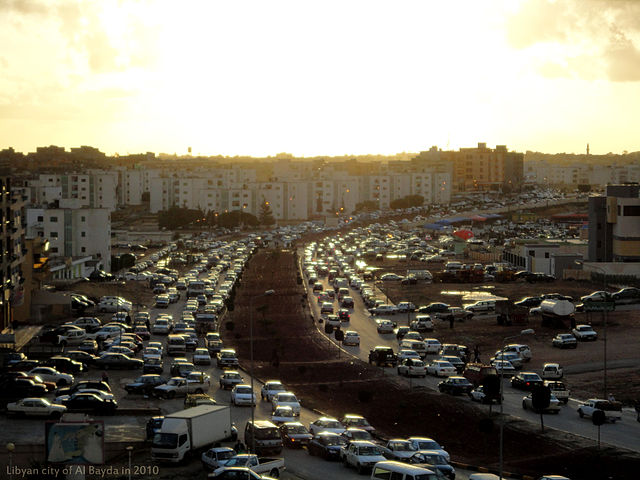By Khaled Would Ajdoud for Al-Monitor. Any opinions expressed are those of the author, and do not necessarily reflect the views of Libya Business News.
In a cafe located on the main street of Bayda city, some 1,200 kilometers [746 miles] east of the Libyan capital, Abdullah sat alone in a corner. Sipping on his coffee, he was lost in thought about the fate of his family and relatives in Derna, the main stronghold of the Islamic State (IS) and the city that extremists aim to pronounce as the capital of their emirate.
Despite a state of anticipation and caution following bloody suicide bombings mounted by IS in adjacent Quba city as a response to the Egyptian raids, the normal pace of life has returned to Bayda.
Bayda is the fourth-largest city in Libya, with a population estimated at more than 200,000. Army and armed civilians have been deployed to strategic positions and have set up checkpoints to prevent the infiltration of suicide bombers from Derna into their city, which is home to the legitimate government formed by the internationally recognized and elected parliament in Tobruk.
The fear of fresh bombings and other attempts to instill insecurity were further reinforced by the discovery of a car filled with explosives in front of Bayda Hospital. The residents of Bayda fought ferociously to oust the regime of Moammar Gadhafi. Since the middle of last year, they have joined fighters from Quba, Marj and Tobruk — part of the main force on which Khalifa Hifter relied to fend off Ansar al-Sharia and the extremist Libya Shield faction in Benghazi.
Abdullah, the trader who recently moved from Derna, despite his pensive nature appeared happy to be able to do the small things that have become forbidden in his extremist-dominated homeland where Sharia is strictly implemented. He can now shave, smoke cigarettes one after the other and express his political opinion without fear of being whipped or killed.





